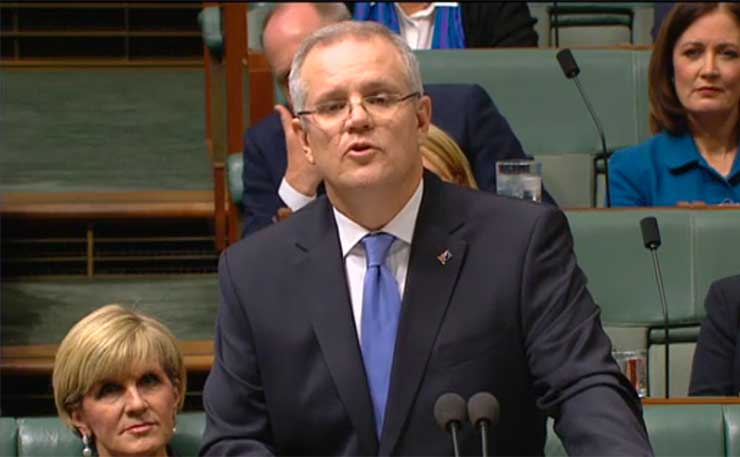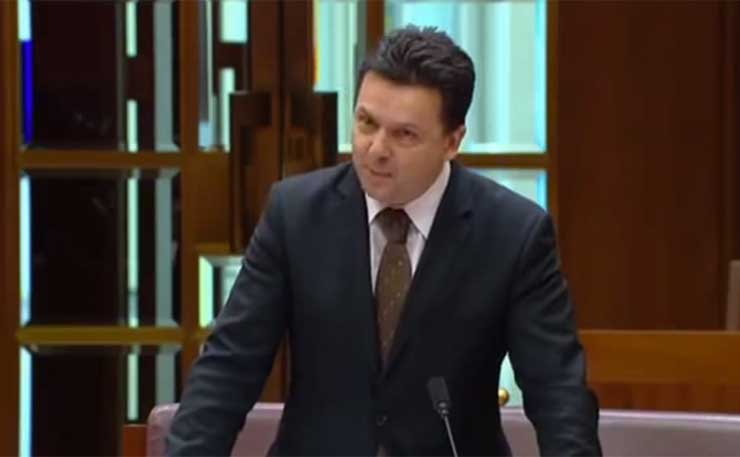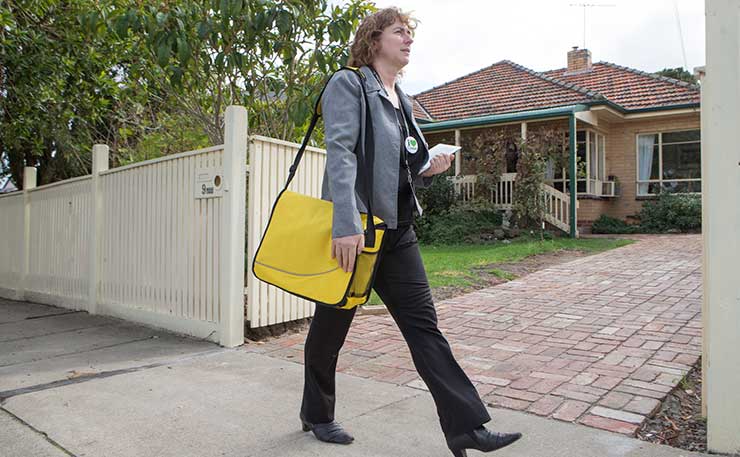How did a thoroughly uncontroversial and well-respected process like the National Census become so smelly, so quickly? Chris Graham explains.
One of the great ironies of the current angst around tomorrow’s Census is that it appears Australians are far more upset by the Australian Bureau of Statistics keeping their personal details linked to household data, than they are by various Australian governments, security agencies, telcos, and internet service providers delving into their private lives and hanging onto their ‘metadata’.
Sure, lots of people objected to George Brandis’ metadata laws, including, apparently, Brandis himself, who delivered one of the most confusing but memorable media interviews in living memory.
But if you watch social media closely – and I do – you can’t help escape the feeling that even more people are more angry that the ABS is going to link the numbers dogs and cats they own (and other data, of course) to their names and addresses.
So how did the ABS so badly lose control of the message?
It all started going pear-shaped a few weeks back, when stories started appearing on social media channels scaring the shit out of everyone that they’d be fined $180 per day for every day they didn’t fill out their Census form.
This was fuelled, of course, by mainstreaming media outlets jumping on the click bandwagon to warn of the fine Armageddon that would follow if you didn’t do you civic duty.
Problem is, the Government has long been able to fine people who refuse to fill out the census. Notably, at the last census in 2011, less than 100 fines were issued. That makes it pretty clear the ABS doesn’t want to fine you. It just wants you to fill out your damn form. Fines have always been reserved for the real intransigents, those who ignore repeated requests and warnings.

That story was largely hosed down by Treasurer Scott Morrison, who was wheeled out to deliver some uncharacteristically happy news… people wouldn’t be fined this year… calm down everyone… just fill out your forms.
But the problems don’t end there. Indeed, that’s where they begin. This year’s Census will largely be completed online, and that’s led to a whole world of trouble and confusion among many Australians, particularly the elderly, a likelihood that was entirely predictable, and not at all helped by how the ABS actually rolled out the new online scheme.
Like about 10 million households, I recently received my Census letter with my specific online code. But that’s more about good luck than good management. The envelope was addressed to ‘the Householder’. And like about 13 million adult Australians, I almost NEVER open mail addressed that way. It usually goes straight in the bin. I’m wondering how many other people did exactly that?
That cock-up in part helped prompt a flood of calls to Census helplines, which the ABS was thoroughly unprepared to receive.
All of this, of course, could have been avoided with a sustained and prominent public information campaign. After all, in 2011 it cost nearly half a billion dollars to count the nation. This year, Census Head Duncan Young claims going digital will shave about $100 million off the bill. So there was a bit of loose change floating around to finance the public relations.
Instead, this is what we got.
In November 2015, the ABS announced it was conducting a ‘Privacy Impact Assessment’ – code for ‘we’re going to have a long hard look at ourselves and decide whether or not the thing we want to do is a good thing to do’. It even called for submissions from interested parties.
A month later, unsurprisingly, the ABS’s inquiry into itself apparently came to the conclusion that plans to retain your personal data well beyond the normal bounds of a census were a really good idea.
And so, on December 18 the ABS announced it was keeping all your names and address details. Missed that press release? You’re not alone.
In media circles, if you have bad news to release, then the Easter Weekend and Melbourne Cup Day is pretty good. So too is the week leading up to (and after) Christmas.
I’m not entirely sure it was the ABS’s strategy to sneak out details of its new privacy provisions, but whatever the case, it’s now proving to be a pretty enormous disaster for them. In not promoting and prosecuting a vibrant debate about the issue back then, the ABS is now staring down the barrel of major controversy, the tarnishing of the reputation of an otherwise pretty impeccable process, and, most importantly, a lower than normal participation rate in the national survey. And all on the eve of Census night.

It’s so messy it prompted Senator Nick Xenophon to call for the Census to be delayed.
Over the past few weeks, more and more ABS resources are being diverted to explaining what’s actually going on and why. This all should have been done months ago.
Even so, while the ABS has clearly fluffed this one, it can’t be blamed entirely for our general malaise on political issues. After all, if enough of us can’t get angry enough about our metadata being trolled, why would the government expect you to get pissed off about private information collected in a Census? Indeed, private information that has always been collected in a Census, albeit destroyed once the Census is collated.
All up, it’s a bit of a cluster f*ck. The ABS is renowned for consistently undercounting Aboriginal people in the census – an enduring national shame given the importance of the data on government decision-making – but in almost every other way it’s generally very accurate, when it comes to the rest of us.
Time will tell if 2016 will be the Census disaster we ‘didn’t have to have’. In the interim, bureaucrats and politicians might like to turn their mind to how the hell this happened. Because, the questions that will be on everyone’s lips – the ones not asked in the Census – are why they didn’t invest some of the 2016 cost savings into a massive public information campaign, and, most importantly, what will be the real cost of this PR disaster?
Donate To New Matilda
New Matilda is a small, independent media outlet. We survive through reader contributions, and never losing a lawsuit. If you got something from this article, giving something back helps us to continue speaking truth to power. Every little bit counts.





